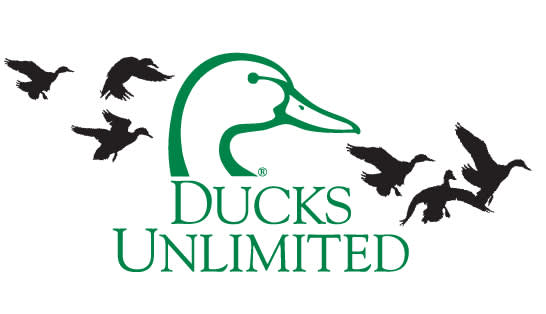Ducks Unlimited Supports Reservoir Development to Benefit Texas Coast
Ducks Unlimited 11.09.12

Ducks Unlimited fully supports the Lower Colorado River Authority’s (LCRA) move to develop off-channel reservoirs to provide much-needed water resources for Texas mid-coast rice agriculture and wetland management. Wetland habitat associated with rice agriculture provides more than half the foraging resources needed by the nearly 2 million wintering waterfowl along the Texas coast.
“We need water in the lower basin to maintain, improve and increase the wetland habitats that provide critical resources for millions of migrating and wintering waterfowl and shorebirds,” said Todd Merendino, DU manager of conservation programs. “Off-channel reservoirs can provide an alternate source of water to fill those needs, and we are very pleased to see LCRA taking steps to make them a reality.”
Ducks Unlimited continues to represent the interests of waterfowl and wetlands—including managed wetlands associated with rice agriculture—in the Texas water arena. The recent hire of Kirby Brown, formerly of the Texas Wildlife Association, as a conservation outreach biologist to focus solely on Texas water issues demonstrates the importance of water resource allocation to DU’s conservation efforts.
“The importance of the rice agriculture landscape and its benefits to migratory waterfowl and shorebirds cannot be overstated,” Brown said. “A decision that restricts water for rice irrigation is more than an issue of upstream versus downstream users; it also affects habitat availability and quality for millions of waterfowl, shorebirds, wading birds and other wetland wildlife. That in turn has dramatic impacts on the local and state economy from waterfowl-hunting and wildlife-watching revenue streams.”
Waterfowl hunting alone contributes $204 million to the Texas economy each year, and wildlife watching contributes an impressive $1.8 billion annually.
According to Gulf Coast Joint Venture calculations, for every 10,000 acres of rice agriculture that disappears, the Texas coast loses the ability to support another 120,000 waterfowl.
“Loss of coastal prairie wetlands and marsh habitats has already created a foraging deficit for the millions of waterfowl that wing their way to Texas each year. Denying water for approximately 50,000 acres of rice agriculture wetlands this year means we’ve added another 600,000 ducks to the hungry side of the equation,” Brown explained.
“LCRA is to be commended for moving forward and quickly developing off-channel reservoirs,” Brown added. “Ducks Unlimited lends its voice in support of developing these new water sources, and we will stay engaged to advocate for waterfowl and other species that will benefit. These unique natural resources have no voice of their own, and they’re a part of our Texas economy and heritage that should never be diminished or lost.”
The Texas Prairie Wetlands Project is a partnership effort between private landowners, Ducks Unlimited, the U.S. Fish and Wildlife Service, Texas Parks and Wildlife Department and the USDA Natural Resources Conservation Service. Under the program, private landowners commit to managing coastal prairie wetlands in exchange for cost-share and professional assistance. Part of that commitment is to flood enrolled lands on a schedule designed to maximize habitat benefits for waterfowl and other migratory birds.
“Many of our private land partners rely on water from LCRA’s irrigation system for their wetland projects and livelihoods, and waterfowl and shorebirds depend on those habitats for their survival,” Merendino said. “By taking advantage of excess rainwater, the off-channel reservoir sites can provide an alternate source for those needs in tough times without having detrimental impacts to bay and estuary inflows. It’s a win-win situation on all fronts.”
In anticipation of the Nov. 14 LCRA board meeting and discussions about an emergency water plan, DU has voiced support for any strategy that allows for first and second crop rice water. Second crop rice, whether harvested or left in the field, provides extremely important resources for waterfowl and other migratory birds.
“We realize that water allocation decisions are challenging, and that compromises will have to be made,” Brown said. “However, DU also feels very strongly that the needs of waterfowl, wildlife, rice and the rural economies that depend on them should be weighed equally alongside upstream stakeholder interests.”

